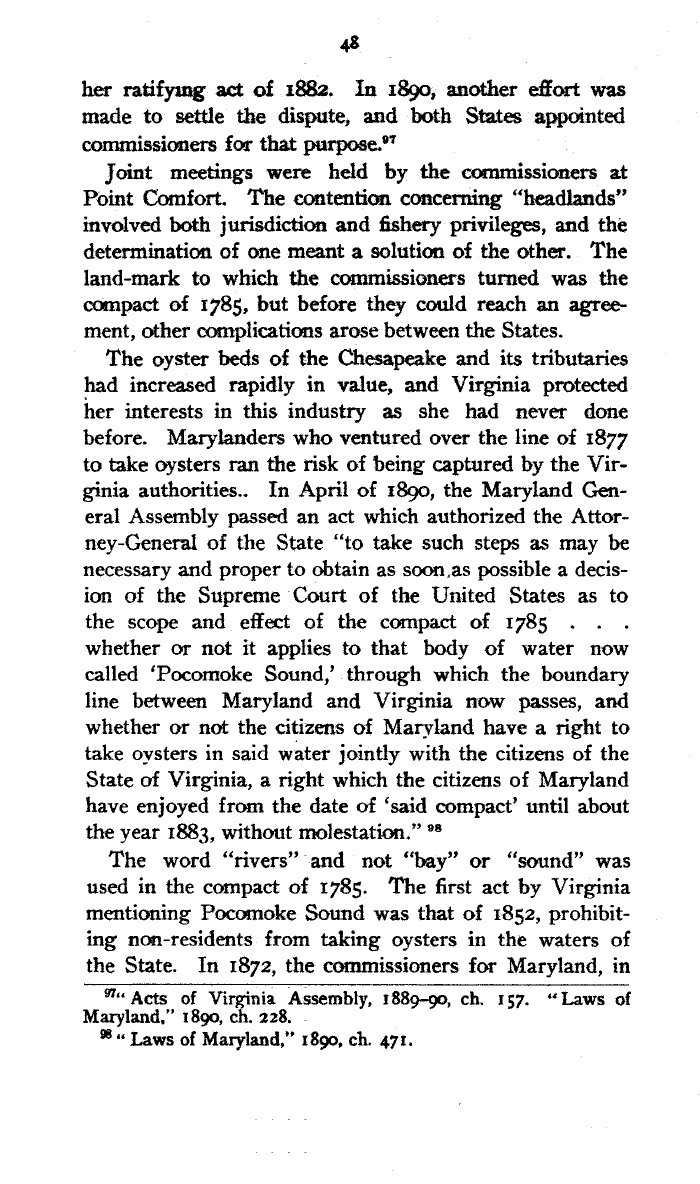| 49
her ratifymg act of 1882. In i8go, another effort was
made to settle the dispute, and both States appointed
commissioners for that purpose.°T
Joint meetings were held by the commissioners at
Point Comfort. The contention concerning "headlands"
involved both jurisdiction and fshery privileges, and the
determination of one meant a solution of the other. The
land-mark to which the commissioners turned was the
compact of 1785, but before they could reach an agree-
ment, other complications arose between the States.
The oyster beds of the Chesapeake and its tributaries
had increased rapidly in value, and Virginia protected
her interests in this industry as she had never done
before. Marylanders who ventured over the line of 1877
to take oysters ran the risk of being captured by the Vir-
ginia authorities.. In April of r89o, the Maryland Gen-
eral Assembly passed an act which authorized the Attor-
ney-General of the State "to take such steps as may be
necessary and proper to obtain as soon,as possible a decis-
ion of the Supreme Court of the United States as to
the scope and effect of the compact of 1785
whether or not it applies to that body of water now
called `Pocomoke Sound,' through which the boundary
line between Maryland and Virginia now passes, and
whether or not the citizens of Maryland have a right to
take oysters in said water jointly with the citizens of the
State of Virginia, a right which the citizens of Maryland
have enjoyed from the date of `said compact' until about
the year 1883, without molestation." e8
The word "rivers" - and not "bay" or "sound" was
used in the compact of 1785. The first act by Virginia
mentioning Pocomoke Sound was that of 1852, prohibit-
ing non-residents from taking oysters in the waters of
the State. In 1872, the commissioners for Maryland, in
Acts of Virginia Assembly, t 889-go, ch. 157. "Laws of
Maryland," i 8go, ch. 228. -
1 "Laws of Maryland," i8go, ch. 4pt.
|

